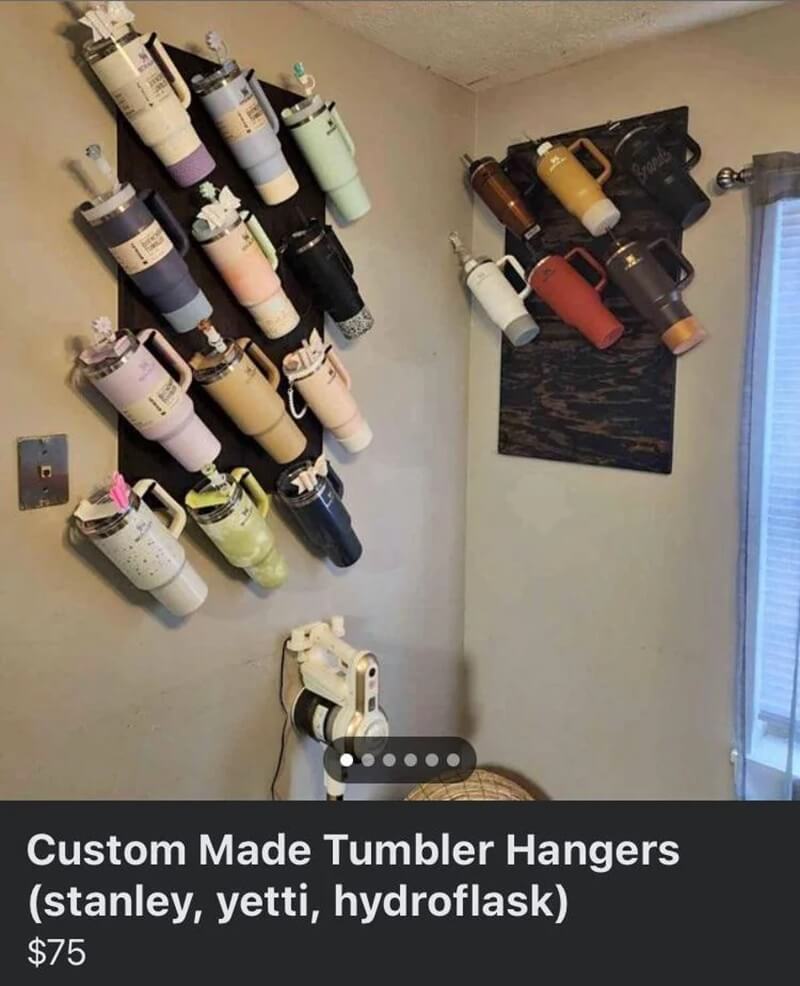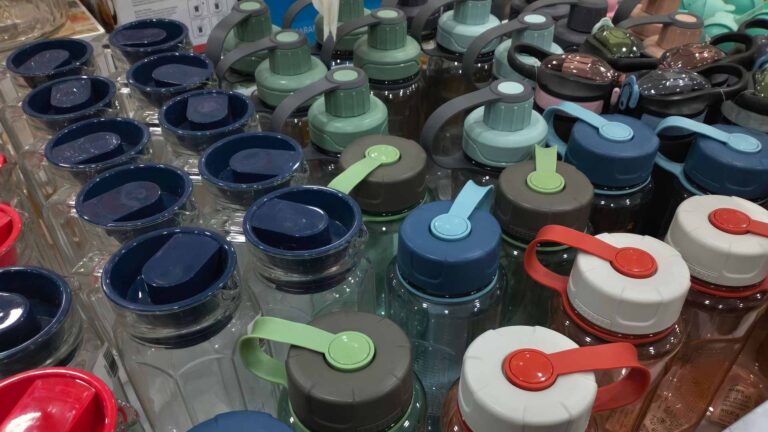Trend cycles can be a way to try new things, but most trends are temporary, so they often result in a lot of waste.
Stanley Cups and other tumblers have become all the rage in recent years, with stores like Target putting caps on new tumbler purchases, as reported by People While reusable cups are a great way to reduce waste and save money, the trend of collecting dozens of these items has largely negated the benefits.
One outraged Reddit user took to r/Anticonsumption to criticize a custom item they saw for sale. The photo shows a collection of more than a dozen Stanley Cups hanging on a wall. At the bottom of the photo is the caption, “Custom Tumbler Hanger, $75.”

As people collect these trendy tumblers, a new market for specialized storage appears to have emerged.
“Consumption has skyrocketed to the point where we’re needing extra storage space to store it all,” the original poster wrote.
Vox reported on the Stanley Cup craze, noting that part of its appeal is due to the company’s longevity and the cup’s ability to keep drinks cold for 11 hours. Part of the branding also appears to be an aesthetic choice: “Stanley’s myriad colors are photogenic and look good on social media, which helps establish the brand’s dominance,” Vox wrote.
Reusable water bottles aim to help reduce waste as an alternative to wasteful single-use plastic bottles. Additionally, they can save consumers the $1,300 they would spend per year on disposable water bottles. Investing in an insulated water bottle can help prevent plastic waste from clogging landfills. However, reusable bottles need to be used multiple times to reap their benefits.
According to MIT’s Office of Sustainability, “using a reusable water bottle every day for a month reduces the environmental impact of each use to a level lower than that of a disposable bottle.”
MIT further advises: “Pick a bottle you love and stick with it, even if it means saying no to a free bottle you don’t use!”
Having dozens of reusable bottles and cups makes it less likely that you will have a positive impact on your environmental impact.
People on the subreddit agreed.
“Why would anyone find this aesthetically appealing? I just don’t get it,” one person wrote.
Another person commented, “It’s ironic that something that is designed to be reusable and environmentally friendly (reusable water bottles) is so wastefully mass-produced that it basically ends up in trash.”
Hopefully, these consumption trends will take a nosedive and our landfills will no longer be filled with unnecessary mass-produced goods.
Sign up for our free newsletter for quick tips Save More, Reduce wasteand Please eat it. While helping the planet.

